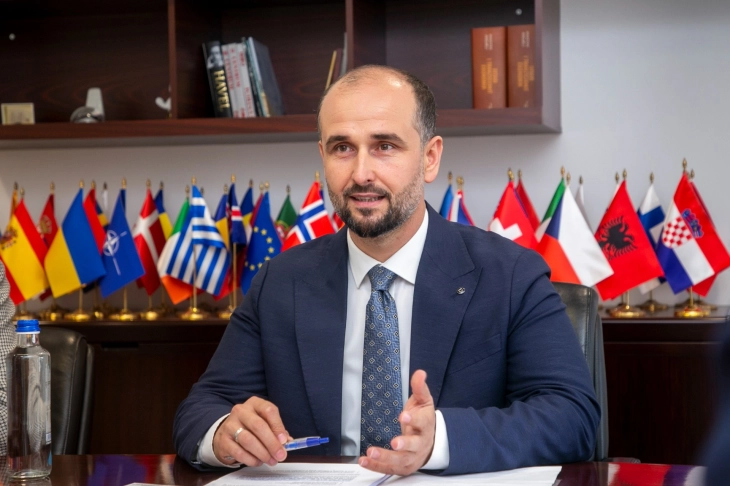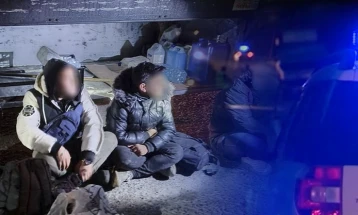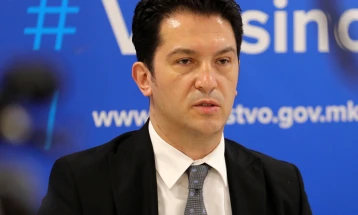Murtezani: Not rejecting proposal on constitutional amendments with delayed effect is sign that common space is being created
- The fact that European Commission President Ursula von der Leyen did not reject our proposal on constitutional amendments with delayed effect is a sign that a common space is being created, which should be used very carefully and wisely, in order to reach a solution, said Minister of European Affairs Orhan Murtezani.

Skopje, 24 October 2024 (MIA) - The fact that European Commission President Ursula von der Leyen did not reject our proposal on constitutional amendments with delayed effect is a sign that a common space is being created, which should be used very carefully and wisely, in order to reach a solution, said Minister of European Affairs Orhan Murtezani.
In an interview with Sitel TV on Thursday, commenting on von der Leyen's visit to Skopje earlier today, he said that Brussels was taking seriously the arguments regarding the constitutional amendments.
"It is important that our arguments, i.e. that the constitutional amendments should not only serve to start the negotiations, but that after the opening of the negotiations the process should not be bilateralized until it is wrapped up, is the key argument that is taken seriously in Brussels and this is not only our request," said Murtezani.
According to him, von der Leyen's messages that EU enlargement is a top priority, are messages that we need to take seriously and move the European integration process forward.
"The visit to the region and the messages that enlargement is an absolute priority in her mandate, are messages that we need to understand and based on that, we need to move the European integration process forward. The key moment, in my opinion, is the EC President not rejecting our proposal on delayed effect. It is a sign that a common space is being created, which should be used very carefully and wisely in order to reach a solution," Murtezani added.
According to Murtezani, von der Leyen's visit is a strong sign that the country must be in the EU and that now is the time to reach solutions.
"Von der Leyen's visit is a strong sign that we must be in the EU, a strong sign that we need to move quickly and strongly towards the EU, that now is the time to reach solutions, that we still have room and if we quickly find a solution, we can start the negotiations together with Albania. The message on implementing the constitutional amendments was clear, it is stated in the conclusions and in the common position of the EU, and the Government does not dispute the need for the adoption of the constitutional amendments, but we want to ensure the process after the adoption of the constitutional amendments. We simply want to make sure that process ends at a certain time. We believe that if the constitutional amendments are only carried out, and we face an additional blockade, the citizens' trust that we will one day be part of the EU will drastically decrease," said Murtezani.
He added that the country has support from many European countries, but underlined that the process should be initiated bilaterally with Bulgaria.
"We will not publicly offer a proposal until the elections in Bulgaria are over, as we believe it can be used for election purposes," Murtezani added.
Commenting on the reform agenda, he said it was an ambitious reform agenda made in a very short period, which will be a serious test of the country's system, whether it is ready and whether it can show credibility to join the European Union sooner.
Asked what the expectations are from the joint history commission between Macedonia and Bulgaria, Murtezani said it should not be under political pressure, pointing out that science does not operate on the basis of political pressure.
"I believe that the commission should not be under political pressure and deliver results quickly. Science does not operate on the basis of political pressure. Such commissions, we have living examples in the EU, with the Polish-German or the French-German commissions, which have been working for decades and have not yet finished their work. Their work should be guided exclusively by scientific perspectives, and politics should not be guided by historical motives," said Murtezani.
Photo: MIA archive







